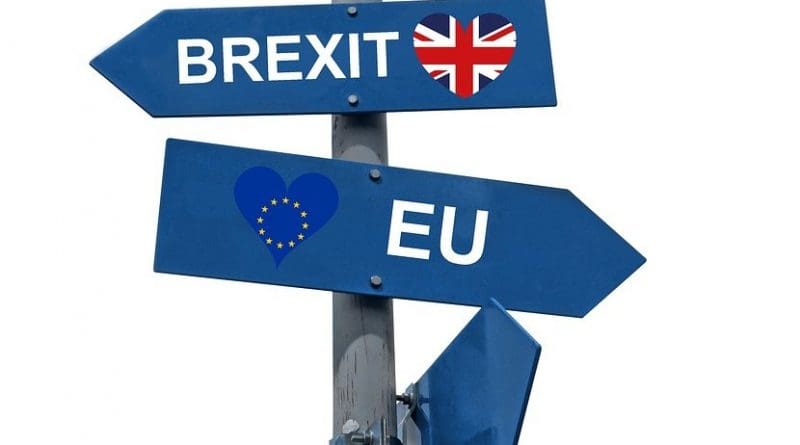Britain’s Contempt For Brexit Shambles Growing – OpEd
By Arab News
By Chris Doyle
Fancy playing Brexit bingo? Pundits, political sages and seasoned observers are all guessing blindly in the dark as to the next chapter of the Brexit tragicomedy. Put on a blindfold and make a stab at it. Even as the government on Monday pulled back from an imminent vote on the withdrawal agreement, the multiple scenarios littering the gameboard are: Parliament agreeing to Theresa May’s potentially reshaped withdrawal agreement; seeking a significantly amended deal — either a Norway-plus or a Canada-plus-plus deal perhaps — a Brexit delay; the fall of the May government and a new prime minister; a general election; a second referendum; or a no-deal exit. The British government is barely capable of governing. Westminster has effectively ground to a noisy halt.
In just a single hour last week, three votes led to the British government suffering three Parliamentary defeats. For the first time in British history, a sitting government was found to be in contempt of Parliament after it had refused to publish in full the legal advice it had received, which MPs had determined it must. Inevitably the government had to concede. Has there ever been a weaker, arguably more shambolic, British government?
The bleeding of political power away from the executive was capped when MPs passed an amendment that gave Parliament a say as to what happens if May’s plan is voted down. Parliament has shown its teeth as the theoretical representative of the people’s will.
Nobody in Britain or the EU could charge the British prime minister with anything less than maximum effort to sell her deal. However, people are just not buying. At the fringes, Brexit diehards try to see the equally implausible option that somehow the EU will renegotiate and within weeks give Britain a much better deal. How and why is not explained. The reality surely is that the EU will simply hold fast to the deal as agreed.
The Conservative Party can also ill afford to change leader now. Six or seven candidates are primed and raring to go, but whoever is chosen will not be able to lead. The party is not one capable of being led. Shift the government position to a harder Brexit and it loses support in the center and vice versa.
Brexit is a constitutional crisis, a crisis in democracy and, in a no-deal scenario, a security and economic crisis. The constitutional crisis revolves around the futures of both Northern Ireland and Scotland. The latest opinion polls indicate that the majority of Scots still prefer independence to Brexit. The democratic crisis is that no majority in Parliament exists for any plan that might be perceived as implementing the expressed will of the British people as expressed in the 2016 referendum. Elected representatives cannot agree to a deal to implement the popular vote.
MPs face the unpalatable choice of voting for a deal that might deliver on the referendum but unquestionably leaves Britain with less control, and economically worse off. If, when all other options are exhausted, a second referendum looms, many voters will ask why they need to be consulted again when an answer had already been given. A general election in all likelihood will not settle any of the Brexit questions and could even just exacerbate existing divisions. Most MPs would not be able to fight an election on the manifestos their parties would put forward because they could not agree with their party’s position on Brexit.
The European Court of Justice also ruled on Monday that Britain could unilaterally cancel Article 50, ending Brexit. It makes a second referendum more likely than a no-deal scenario, as the UK does not need the EU’s permission to remain. Under UK law, it would just need a new act of Parliament to stay in the EU.
Choose any path and it comes jam-packed with division and rancor in a patriot versus traitor hate-fest. Civil discord is a serious possibility. Britain will remain a divided country, with no option capable of commanding even a begrudging consensus. Chatting to MPs from all parties last week, the striking feature was that no two could agree. Clarity may be a distant dream for months to come.
Increasingly, the only exit from this pickle is a second referendum, which has been repeatedly ruled out by the government. A general election does not guarantee a specific outcome. The challenge about returning the ball to the voters is that they are fed up with playing the game. If the government is in contempt of Parliament, the general public is increasingly in contempt with the entire political system.
• Chris Doyle is director of the London-based Council for Arab-British Understanding (CAABU). Twitter: @Doylech

